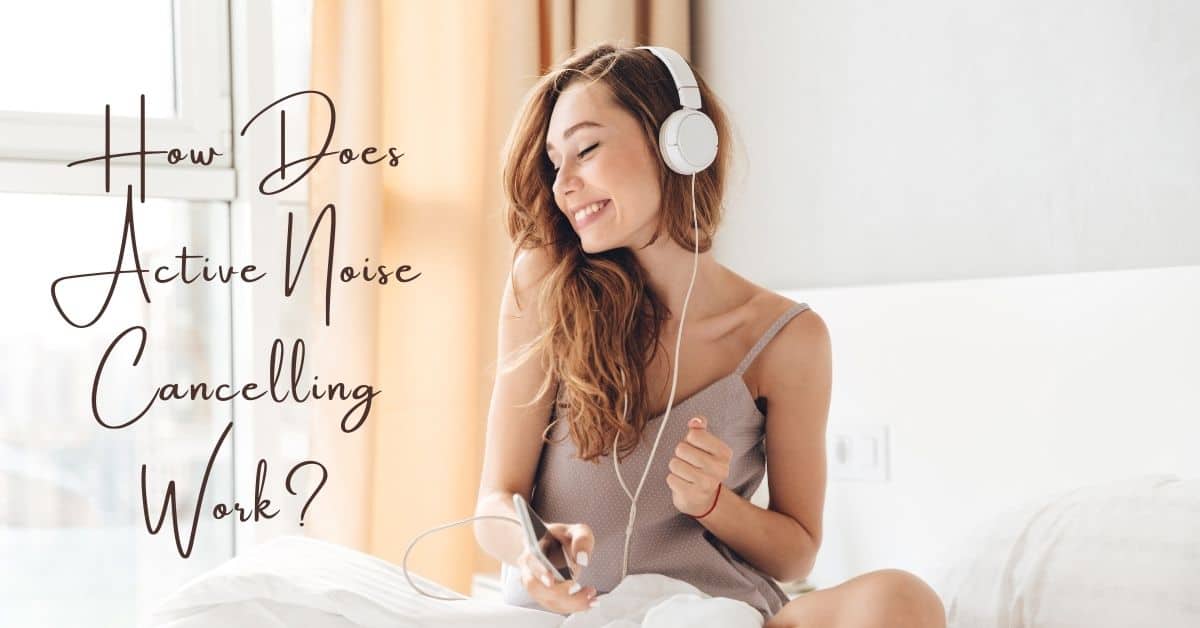
For those that don’t protect their hearing regularly, activities such as sporting events and concerts may cause immediate, long-term harm to the ears. But even everyday sounds can take their toll. There are plenty of ways in which noise exposure can lead to compromised hearing, from city traffic and continuously barking dogs to your neighbor’s snowblower.
If you enjoy listening to music through headphones (an activity that many of us take for granted and never give a second thought to), your chances of developing hearing loss will also increase. Luckily, there’s one way in which we can help prevent hearing loss while still enjoying our favorite songs, podcasts, and TV shows – noise-canceling headphones.
How Noise Canceling Works
Noise-canceling headphones use a feature called active noise cancellation (ANC).
It works by leveraging a physics theory called ‘phase cancellation.’ Sound, as you probably know, moves in waves, passing molecules of air. These waves pass through the air to your ear canal, where the eardrum vibrates. However, the two largely cancel each other whenever a sound wave encounters another sound wave precisely the same in frequency and opposite in amplitude.
Image the air molecules between two points as a string extended. If someone in the middle were to press down on the string, it would disrupt the string, creating a ripple. But if anyone else were to push the string on the opposite side at the same spot with the same force, the string would barely move. Although this visual doesn’t communicate precisely how sound waves work, it allows you to imagine how a wave is effectively canceled out when combined with its opposite.
On the inside (and often the outside) of the earcups, active noise-canceling headphones use tiny microphones to process the sound heading towards your ears and play the opposite phase of that sound instantly through the headphone drivers. The opposing forces minimize the air-molecule movement effectively, and you get a decrease in perceptible sound. Again, this is a simple example, but it is the basic idea of all ANC headphone designs.
What Are The Benefits Of Noise-canceling Headphones?
- Helps protect you against noise-induced hearing loss. Too often, when we are confronted with noise when listening to our earbuds, we raise the volume to compensate. This is terrible news for our ears. However, noise-canceling headphones allow you to keep your music volume or podcast down by blocking out background noise, protecting your ears.
- Reduces stress from noise exposure: Noise hurts more than our ears. Study studies have found associations between exposure to long-term noise and a heightened risk of heart attack and stroke, as well as irritability and sleep and concentration problems. At just 65dB, the level of a loud conversation, adverse effects on mental and physical health will begin to occur.
- Noise cancellation makes focusing easier. Ambient noise can make it very hard to focus, whether working in the workplace, preparing for an exam, or attempting to read a book on the bus. These sounds are removed by the anti-noise emitted by noise-canceling headphones so that you can concentrate entirely on what you are doing. Therefore, the use of noise-canceling headphones could help to improve your test scores and work efficiency. If you are riding on public transit and do not want to be disturbed, they are also a great tool.
A Few Things To Remember When Using Noise-canceling Headphones
- Continue to practice responsible headphone use. Even though noise-canceling headphones reduce the urge to crank the volume up, we should all continue to practice responsible headphone use. This revolves around the 60/60 rule: Listen to your music/content at no more than 60% of the total volume for a maximum of one hour. After that hour, take a break before continuing.
- They aren’t safe when used in certain situations. It’s not a good idea to wear noise-canceling headphones when walking outdoors. Paying attention to your environment will help keep you safe from cars driving by and reduce your chance of accidents. You need to be alert to honking cars, emergency sirens, and other possible dangers. You also shouldn’t use them while driving.
